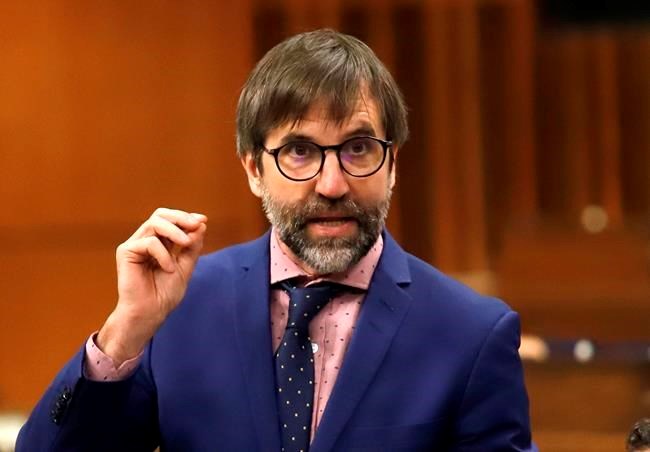HALIFAX — Canada’s environment minister has rejected a proposed plan by the Nova Scotia government to avoid the federal carbon tax.
In a letter to Premier Tim Houston dated Aug. 29, Steven Guilbeault noted that Nova Scotia's plan doesn’t put a price on carbon pollution, adding that his department remains open to “alternate proposals” that meet the federal government’s approach.
“As it does not mention to put a price on carbon pollution, I can confirm that it does not meet the Pan-Canadian Approach to Carbon Pollution Pricing for 2023—2030,” Guilbeault wrote. “You are proposing to end Nova Scotia’s cap-and-trade system, with no replacement that would put a price on pollution.”
Guilbeault said the federal government is committed to ensuring that the same carbon pricing incentives to reduce emissions are in place in Nova Scotia and across Canada.
“The federal carbon pollution pricing system will be applied in provinces and territories that request it or that do not implement a system that aligns with the common minimum national stringency criteria,” the minister said.
The new federal carbon tax will increase the price of carbon by $15 per tonne in 2023, and then rise again every year until it reaches $170 per tonne in 2030.
Houston has said that with the rising cost of living, the time isn’t right for a carbon tax that could add 14.4 cents per litre to the cost of gasoline in Nova Scotia starting April 1, 2023.
Earlier this month, the province released its own plan to reduce emissions, which was a list of the government's existing environmental goals that were set out in legislation last fall. They include phasing out coal-fired electricity generation by 2030, having 80 per cent of the province's energy supplied by renewable sources by 2030, and having zero-emission vehicles comprise 30 per cent of vehicle sales also by that year.
Houston said following the plan’s release that if his province doesn't meet its emission-reduction targets, then Ottawa could institute a carbon tax.
Nova Scotia currently has its own cap-and-trade program for large industrial emitters that has been in place since 2019. The program, which has allowed the province to avoid major price increases to gasoline, is set to expire at the end of this year.
Provincial Environment Minister Tim Halman has said the province's options are to go with a carbon tax, stick with a cap-and-trade system or create a hybrid of the two models.
Opposition Liberal Leader Zach Churchill said in a statement Tuesday that Guilbeault indicated in the letter that a carbon tax is coming to Nova Scotia.
Churchill accused the Progressive Conservative government of “sitting on its hands for over a year” before coming up with a plan he called a “cobbled-up document.”
“He (Houston) knew what was at stake and he chose not to act,” Churchill said. “The Houston government won’t take responsibility for the carbon tax coming to Nova Scotia, but make no mistake, it’s their neglect that got us here.”
This report by The Canadian Press was first published Aug. 30, 2022.
Keith Doucette, The Canadian Press



